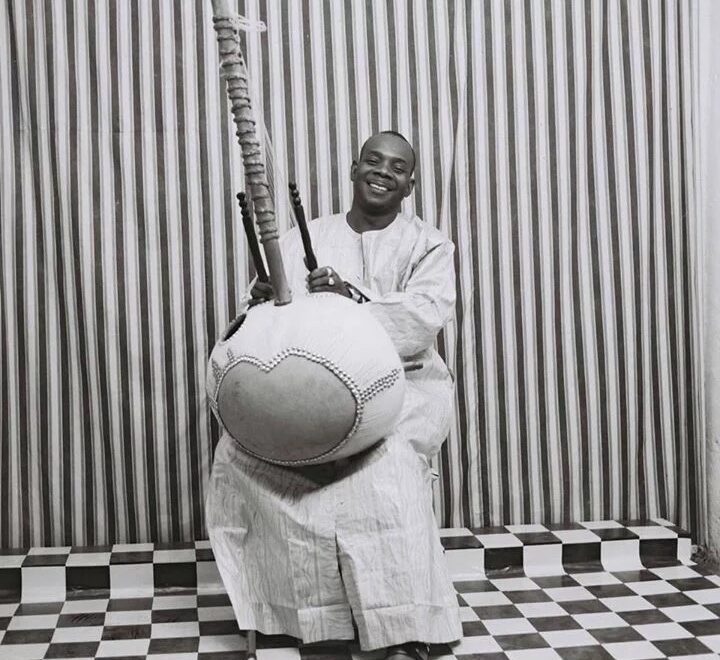Griot families such as that which the great kora player Toumani Diabate, who passed earlier this week, was born into play a crucial part in West African culture. […]
Remembering Electronic Music Pioneer Simeon Coxe

Why “Silver Apples” is a deep listening classic
Nestled in the back-cover liner notes of Silver Apples’ 1968 self-titled debut album is a simple instructive that will resonate with anyone who understands the concept of deep listening:
INSTRUCTIONS: Play Twice Before Listening.
Implicit in the message is the truth that sometimes shock-of-the-new sounds can be so confusing to an untrained brain that the eardrums and inner receiver they’re connected to need some time for the circuitry to forge new paths. That truth was at the center of Silver Apples’ electronic masterpiece, and is a central tenet of the so-called “slow listening” movement. Some musical languages require effort, at least at first, to understand.
Silver Apples’ founder, Simeon Coxe, died on Monday. The pioneering duo he founded with drummer Dan Taylor issued what is arguably the first hard rock album to ditch the electric guitar in favor of heavy electronics, and did so during an era when most other rebels were gobbling acid and focusing on six-stringers connected to amps.
The group released six studio albums, but we’re focusing on the debut, as it’s an endlessly rewarding listen. That’s not just because of Coxe’s awesome, in-your-face use of electronic oscillators to generate feedback worthy of the Velvet Underground’s “Sister Ray.” Within the album are innovations that tease the electronic future. Coxe’s bass-line generator, primitive as it is, powers the band’s best known track, “Oscillations,” with a propellant undercurrent that would also drive New York band Suicide’s relentless electronic punk.
Heard at ample volume, the abrasive tribal beatdown “Dancing Gods” precedes the hardbeat Wax Trax sound of Chicago by decades. Weird, random chirps and bleets sound teleported from Autechre’s earliest work; Taylor’s tom-tom and snare-driven rhythms offer order that can feel almost militaristic in its devotion to the mission. Tones leap from speaker to speaker with full-on stereophonic glory.
Coxe and Taylor weren’t the record’s lyricists. Rather, New York poet Stanley Warren penned the words. The good news is they aren’t dumb, pretentious, flowery or dull. Here’s the first few verse of “Whirly Bird.”
Whirly-bird unzip my mind
So nuts and bolts spill out with
Twisted wires and shattered bulbs and
Bits of glass emotion copper cures.
The jangled snarl of every day
Unwound and fixed upon the board
Where parts and wholes together lash
Component dreams and slabs of light
All fused within the silver globe
That swirls on top of my whirly-bird.
Then there’s “Program,” which employs tape loops and found sound to generate proto-sample snippets that Coxe mixed to match the beat. Many others had employed found sound on records by then, but mostly in the furrow-browed academic realm. The most famous song to use found sound at the time, the Beatles’ “Revolution #9,” came out five months after “Program.”
Silver Apples is a crucial record for anyone interested in the earliest convergences of electronics and rock – i.e. Krautrock fans, for sure.
It was originally issued on Kapp Records, which was a terrible fit. At the time, the label had been around for a decade-and-a-half and had earned bank on easy listening records by cheeseballs such as Roger Williams and Jack Jones. Apparently the label had at least one adventurous A&R guy who signed the Apples, the Latin Souls and the Elastik Band, among others.
Those looking for a quality vinyl pressing have a few options.
Early Kapp pressings will run you about $80 and are easily had on Discogs. Keep an eye out for copies that include the advertised “Full Color Souvenir Poster.” Later Kapp pressings go for about half that. The record was issued in the Netherlands in 1977 by MCA Europe, and those versions command about $50. Hardcore fans: Curiously, in 1968 “Silver Apples” was also released as a Stereo-Pak cassette. The format, created by Southern California stereo huckster Earl “Madman” Muntz, was designed for portable playing in cars, and predated the 8-track tape. Copies of the Stereo-Pak version are incredibly rare.
— E. Little
Watch Simeon’s interview/performance for Tunnel Vision from 2016:
Listen to Silver Apples’ self-titled debut:
Cover photo by Syeus Mottel.










